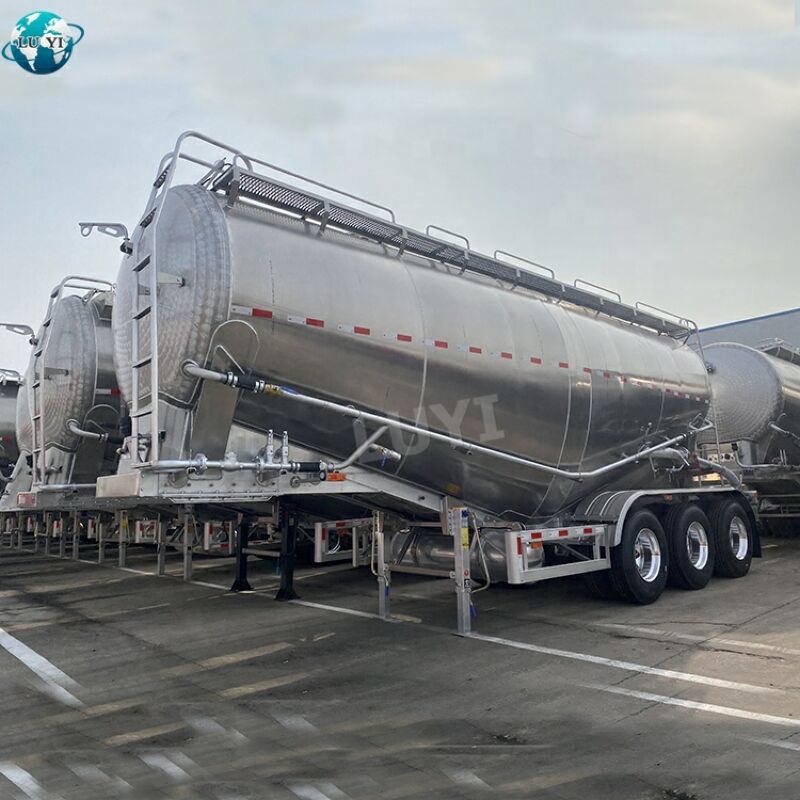How to Choose the Right Powder Tanker for Your Business
Choosing the right powder tanker for your business is a crucial decision, as it directly impacts your transportation capabilities and the efficiency of your operations. Whether you're in the food, chemical, pharmaceutical, or any other industry that requires bulk powder transport, here are some key factors to consider when selecting the appropriate powder tanker:
1. Cargo Type:
Identify the type of powder or bulk material you will be transporting. Different powders may require specialized tanker designs and materials to ensure safe and contamination-free transport.
2. Tanker Material:
Consider the material of the tanker itself. Common materials include stainless steel, aluminum, and carbon steel. The choice of material should align with the specific requirements of your cargo to prevent contamination and corrosion.
3. Tanker Capacity:
Determine the volume of powder you need to transport in each trip. Tankers come in various capacities, so choose a dry bulk trailer that matches your typical load size while considering potential future growth.
4. Discharge System:
Evaluate the discharge system of the tanker. Depending on your needs, you may require a tanker with various discharge options, such as gravity discharge, pneumatic discharge, or auger discharge.
5. Transportation Regulations:
Familiarize yourself with local and international transportation regulations that pertain to your cargo. Ensure that the selected powder tanker complies with these regulations, including weight limits and safety standards.

6. Cleaning and Maintenance:
Consider the ease of cleaning and maintenance. Some cargoes may leave residues or require thorough cleaning after each use. A tanker with easily accessible components can reduce downtime and maintenance costs.
7. Airtight Sealing:
For powders that are sensitive to moisture or contaminants, opt for a tanker with airtight sealing mechanisms to maintain the quality and integrity of your cargo.
8. Safety Features:
Prioritize safety features such as emergency venting, pressure relief valves, and anti-overfill systems to prevent accidents and ensure compliance with safety regulations.
9. Compatibility with Loading/Unloading Equipment:
Ensure that the tanker is compatible with your loading and unloading equipment, such as pumps, hoses, and loading bays. Compatibility can streamline the transfer process.
10. Durability and Corrosion Resistance: - Consider the durability of the tanker, especially if your operations involve harsh environments or corrosive materials. Stainless steel tankers are known for their corrosion resistance and longevity.
11. Brand Reputation and Quality: - Research and choose a reputable flour tankers manufacturer with a track record of producing high-quality powder tankers. Reading reviews and seeking recommendations from industry peers can be helpful.
12. Cost and Budget: - Establish a budget for your powder tanker purchase. While cost is an important factor, prioritize value for money and long-term reliability over the cheapest option.
13. Transportation Distance: - Consider the distance your cargo will travel. Longer routes may require specialized equipment, such as tanker trailers with reinforced suspension systems for improved stability.
14. Payload Efficiency: - Optimize payload efficiency to reduce transportation costs. Select a powder tanker design that maximizes payload capacity while adhering to weight limits.
15. Warranty and Support: - Inquire about warranties and after-sales support provided by the manufacturer or dealer. A strong warranty and responsive support can be invaluable in case of issues or maintenance needs.
16. Environmental Impact: - If environmental sustainability is a concern for your business, explore tanker options that align with eco-friendly practices, such as those designed for efficient loading and reduced emissions.
Choosing the right powder tanker for your business is a decision that should be made carefully after thorough research and consideration of your specific cargo, operational requirements, and regulatory compliance. It's advisable to consult with experts in the field, such as tanker manufacturers and industry professionals, to ensure that your choice meets all your business needs.
206
0
0


Comments
All Comments (0)